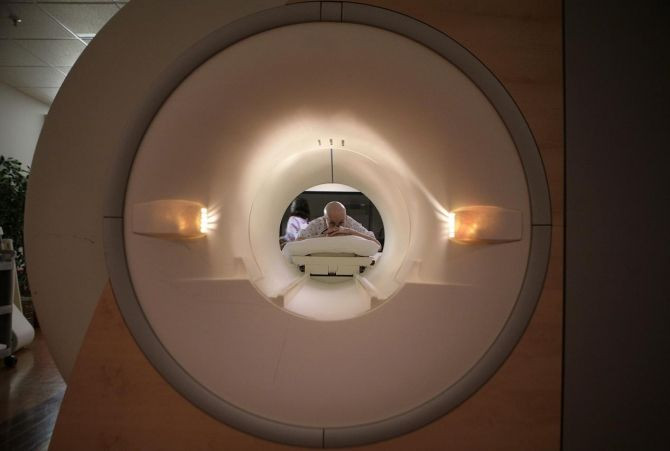Experts Discover 'Better' and Safer Ways of Spotting Heart Problems

Patients are better off having magnetic resonance imaging to scan for heart diseases than the existing “gold standard” tests, experts said on Friday.
U.K. Researchers at the University of Leeds said that their findings could change the way doctors assess their heart patients by avoiding the need for tests that are more invasive. The study was published in the journal The Lancet.
Researchers recruited 752 participants and found that MRI scans were more reliable in detecting signs of coronary heart disease, and in contrast with current tests such as angiograms and SPECT imaging MRIs do not use harmful ionizing radiation.
"We have shown convincingly that of the options available to doctors in diagnosing coronary heart disease, MRI is better than the more commonly-used SPECT imaging test,” said Dr. John Greenwood, the lead researcher of the study in a statement.
“As well as being more accurate, it has the advantage of not using any ionizing radiation, sparing patients and health professionals from unnecessary exposure," he added.
A Single-photon emission computerized tomography (SPECT) scan is a kind of nuclear imaging test that uses a radioactive substance and a camera to generate a 3D picture that shows blood flows to the heart. SPEC scans are generally safe, but they can cause pain, swelling, and bleeding when patients are injected with a radioactive tracer.
Like SPECT, an angiogram is an imaging test that will also expose patients to radiation. Angiograms rely on powerful X-ray machines to show the heart’s blood vessels. A type of dye is injected into the patient, and an X-ray rapidly takes pictures of the dye that travels throughout the patient’s blood vessels.
MRI scans use strong magnetic fields and radio waves to generate detailed pictures of the body’s internal organs, and are currently widely used to help diagnose other conditions. They do not require injections or radiation like SPECT tests and angiograms.
"At present, not all hospitals have the expertise to undertake such scans but these findings provide clear evidence that MRI should be more widely used in the future," said Professor Peter Weissberg, Medical Director at the British Heart Foundation that sponsored the study.
One expert was skeptical about replacing current tests with MRIs.
Dr. Robert Bonow of the Center for Cardiovascular Innovation at Northwestern University wrote in the Lancet in an accompanying commentary that there has been an “explosive growth of cardiovascular technology in the last 50 years,” with most of the advances coming in the use of imaging.
The growth in medical technology “coincided with a remarkable decrease in coronary mortality in the same period” but it is unclear if MRIs have really contributed to better consequences, he said.
Bonow said that the “enhanced diagnostic accuracy” of the MRIs needs to be “balanced against availability and cost-effectiveness, and there is a need for evidence of measurable improvements in patient outcomes.”
Published by Medicaldaily.com



























